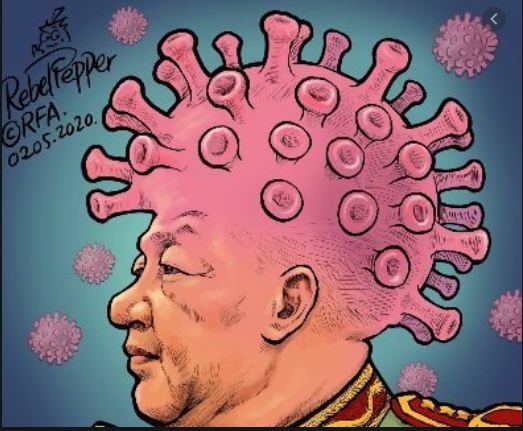Virendra Pandit
New Delhi: The Huanan Seafood Wholesale Market in Wuhan, China, remains deserted even a year after the first cases of a mysterious disease, then identified as a new ‘pneumonia’ or ‘influenza’, began to be reported.
By December 31, 2019, at least four cases of the disease, later named Covid-19, had been reported from the market, which was closed down immediately. Panicked, the government clamped a 76-day-long lockdown in the central Chinese city, barring the people from leaving their homes.
That did not stop its spread. Thailand became the second country to report infections, brought in by Chinese aircraft. Soon, the pandemic spiraled out of control everywhere.
Nearly a year after its outbreak, Covid-19 has claimed more than 1.5 million lives. Wuhan’s wet market, the epicenter of the pandemic, remains deserted even as the city surrounding it is claimed to have returned to normal life, according to media reports.
Globally, across more than 200 countries, Covid-19 has since infected more than 70 million people, of whom over 49 million have recovered. But many of them have also reported fresh co-morbidities. Several vaccine candidates are in the fray to hit the market in the coming days but few could offer a complete cure.
The mysterious virus has since ruined several economies and changed geopolitical equations and alliances.
A team of World Health Organization (WHO) experts has yet to visit Wuhan, let alone the wet market. Health officials in China and abroad have warned that virus’ origin-tracing efforts could take years and yield inconclusive results, media reported on Friday.
Facing a severe loss of face internationally, China has since tried to ride the roughshod and divert the world’s attention by raking up border disputes against a dozen countries, including India.
Taking a cue, many residents of Wuhan refuse to admit that their wet market could be the epicenter of a pandemic.
“It certainly couldn’t have been Wuhan… surely another person brought it in. Or surely it came from some other product brought from outside. There were just certain conditions for it to appear here,” said a wet market vendor in the city’s center.
Even the Chinese government and its state-controlled media is trying to wriggle out of the stigma by claiming that the virus may have originated in some other country—India and Bangladesh included!
But the Chinese government does not want the world to probe the origins of Covid-19. It has severely restricted access to the wet market.
Recently, the local government added leafy green plants and traditional Chinese paintings to the semi-permanent blue barricades encircling the area in an attempt to create a façade to cover up the area.
While the ground floor of the wet market remains empty, its second floor has seen some life back, with a few shops reopened. But the security guards do not allow anyone to take video or photos inside the market.
The last word on the pandemic or its origins in China is still awaited.

